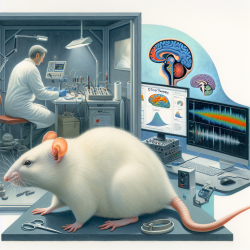As a practitioner focused on creating great outcomes for children, understanding and implementing evidence-based strategies is crucial. A recent pilot study titled Increasing the Efficacy of Treatment for Socially Anxious Youth Through Theoretically Derived Improvements: A Pilot Study provides valuable insights that can enhance your therapeutic approach for children with Social Anxiety Disorder (SoAD).
The study found that children with SoAD do not respond as well to generic cognitive behavioral therapy (CBT) programs compared to children with other anxiety disorders. This pilot study aimed to evaluate the efficacy of a disorder-specific intervention for children with SoAD, utilizing an adapted version of the Cool Kids anxiety program. Here are some key takeaways and practical applications for your practice:
Key Findings
- Three out of five children were in remission from SoAD at the end of the intervention and at a 3-month follow-up.
- Statistically significant improvements were noted in overall anxiety symptoms and functioning.
- Preliminary evidence supports the efficacy of a social anxiety-specific version of the Cool Kids program.
Practical Applications
Based on these findings, here are some actionable steps you can take to enhance your therapeutic practice:
1. Utilize Disorder-Specific Strategies
Incorporate techniques that specifically target the maintenance mechanisms of SoAD. These include:
- Attention Training: Teach children to shift their focus away from self-focused attention to task-focused attention.
- Video Feedback: Use video recordings to help children gain a more realistic perception of their social performance.
- Behavioral Experiments: Design tasks that expose children to their feared situations without safety behaviors, allowing them to gather evidence that disconfirms their fears.
2. Build Strong Therapeutic Alliances
Children with SoAD may find it challenging to build a rapport with their therapist due to their anxiety. Spend additional time in the initial sessions to establish a strong therapeutic alliance. Use strategies like ice-breaker games and closed questions to reduce pressure on the child.
3. Focus on Reducing Safety Behaviors
Identify and target safety behaviors that children use to cope with anxiety, such as avoiding eye contact or speaking softly. Conduct experiments to show the child that they can perform better without these behaviors.
4. Tailor Cognitive Restructuring
Adapt cognitive restructuring techniques to focus on the specific worries and negative thoughts associated with social anxiety. Use detective thinking to help children challenge their catastrophic thoughts and develop more realistic appraisals.
5. Encourage Parental Involvement
Engage parents in the therapeutic process by educating them about anxiety and effective parenting strategies. This can help in reinforcing the skills learned during therapy sessions at home.
Conclusion
Implementing these disorder-specific strategies can significantly improve outcomes for children with SoAD. The preliminary evidence from the study is promising, and further research could provide more robust support for these interventions. As practitioners, staying informed about the latest research and incorporating evidence-based practices into our work is essential for creating the best outcomes for the children we serve.
To read the original research paper, please follow this link: Increasing the Efficacy of Treatment for Socially Anxious Youth Through Theoretically Derived Improvements: A Pilot Study.










